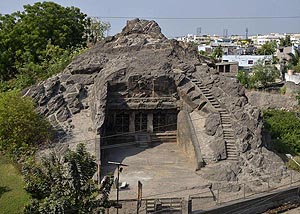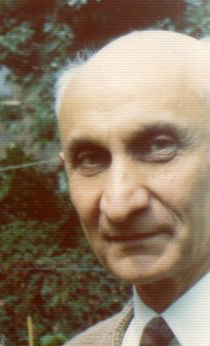Dharma companions is a blog focusing on Dharma activities, information dissemination and bringing awareness to the multifaceted aspects of Buddhism for the community from Shah Alam Buddhist Society (SABS). Postings should be of interest to Buddhist and anyone who seeks information on Buddhism. As the title suggest, we also aim to be a companion to those who seeks our company in this path that we undertake. May you be well, happy and peaceful.
Saturday, November 19, 2016
Sariputta
Labels:
Teacher
Location:
Shah Alam, Selangor, Malaysia
Xuan Zang stayed in Vijayawada to study Buddhist scriptures
by G. Venkataramana Rao, The Hindu, November 3, 2016
Chroniclers of history have documented ancient inscriptions in the region.
Andhra Pradesh, India -- Chinese Buddhist pilgrim and scholar Xuan Zang stayed a couple of years in Bezawada (the old name of Vijayawada) to copy and study the Abhidhammapitakam, the last of the three pitakas (Pali for baskets) constituting the Pali canon, the scriptures of Theravada Buddhism.
 The Nataraja cave in Moghalrajpuram in Vijayawada is the largest cave left of Poorvasaila monastery. Photo: V. Raju
The Nataraja cave in Moghalrajpuram in Vijayawada is the largest cave left of Poorvasaila monastery. Photo: V. Raju The writings of Xuan Zang (also spelled Hsuan Tsang or Hiuen Tsang) about his travels in India are detailed accounts of the life of the people in the 7th century. The Chinese government has used his work to establish that the relationship between India and China is 1,400 years old.
Friday, November 18, 2016
Ajiro: Vegetarian ‘shojin ryori’ in a Buddhist temple complex
by J.J. O'Donoghue, The Japan Times, Nov 11, 2016Kyoto, Japan -- I ate my lunch at Ajiro in the company of a bewildered farmer with a comical Donald Trump-like mop of hair. But looks were the least of his concern; rather it was a bull that had got the better of him, escaping from the herd and hightailing it to the hills. Luckily he finally found the animal hiding behind a rock, lassoed him and triumphantly led him back to the herd. Was there something in my miso soup you might be wondering?  Sharp and creamy: Ajiro's goma-dofu (sesame tofu) comes topped with a sprig of hana-sansho (pepper flowers). | J.J. O'DONOGHUE Sharp and creamy: Ajiro's goma-dofu (sesame tofu) comes topped with a sprig of hana-sansho (pepper flowers). | J.J. O'DONOGHUEThis was the simple but satisfying scene painted on the six fusuma (papered sliding doors) that surrounded me while I ate lunch at Ajiro. This restaurant specializes in shojin ryori, traditional vegetarian Buddhist cuisine. And that painted bull was the only trace of meat at this restaurant, which serves only vegetarian meals. |
The Best Remedy
 The Venerable Sayadaw U Pandita at Panditarama Hse Mine Gon Forest Meditation Center in Burma, 2014
The Venerable Sayadaw U Pandita at Panditarama Hse Mine Gon Forest Meditation Center in Burma, 2014
Regarded as one of the world’s most eminent meditation masters and Theravada Buddhist scholars, the Venerable Sayadaw U Pandita of Burma (now Myanmar) passed away on April 16, 2016, at the age of 94. Successor to Mahasi Sayadaw and spiritual adviser to Burma’s Nobel Peace Prize laureate and State Counsellor, Aung San Suu Kyi, Sayadaw U Pandita entered monastic life at the age of 12. Through decades of experience in the theory and practice of meditation, he cultivated in others the motivation to know and experience the taste of the dhamma, which he viewed as many times better than all the other tastes of the world. With this goal in mind, he established meditation centers throughout the world, working tirelessly to share the Buddha’s teachings in accordance with the instructions of Mahasi Sayadaw (1904–1982), encompassing both scripture and practice so that neither would be omitted. He lived as head teacher for eight years at the Mahasi Meditation Centre in Yangon, where the worldwide mass lay insight meditation movement began in 1947, until 1990, when he founded the meditation and study monastery Panditarama Shwe Taung Gon Sasana Yeiktha, also in Yangon.
Labels:
Skillful Practice,
Teacher
Location:
Myanmar (Burma)
Thursday, November 17, 2016
The Bases of Success (Iddhipāda) 四種成就之基因
I shall now give a brief description of the iddhipādas, the bases of success.
Iddhi
The word-explanation is: “ijjhanam iddhi”; this means the fact of having succeeded, completed or perfected.
In the Buddha Sāsana there are five iddhis:
1.Abhiññeyyesu dhammesu abhiññā-siddhi
2.Pariññeyyesu dhammesu pariññā-siddhi
3.Pahātabbesu dhammesu pahāna-siddhi
4.Sacchikātabbesu dhammesu sacchikiriya-siddhi
5.Bhāvetabbesu dhammesu bhāvanā-siddhi
The word-explanation is: “ijjhanam iddhi”; this means the fact of having succeeded, completed or perfected.
In the Buddha Sāsana there are five iddhis:
1.Abhiññeyyesu dhammesu abhiññā-siddhi
2.Pariññeyyesu dhammesu pariññā-siddhi
3.Pahātabbesu dhammesu pahāna-siddhi
4.Sacchikātabbesu dhammesu sacchikiriya-siddhi
5.Bhāvetabbesu dhammesu bhāvanā-siddhi
Labels:
Teacher,
Understanding
Location:
Shah Alam, Selangor, Malaysia
What Love Is
Born in Berlin of Jewish parents in 1923, Ayya Khema [1923-1997] escaped Nazi Germany in 1938 with a transport of 200 children to Glasgow. She joined her parents two years later in Shanghai, where, with the outbreak of war, the family was put into a Japanese POW camp, in which her father died.
Labels:
Inspirational,
Teacher
Location:
United States
SN22.1
Ven. Sariputta said: "Now, how is one afflicted in body & afflicted in mind?
"There is the case where an uninstructed, run-of-the-mill person — who has no regard for noble ones, is not well-versed or disciplined in their Dhamma; who has no regard for men of integrity, is not well-versed or disciplined in their Dhamma — assumes form (the body) to be the self, or the self as possessing form, or form as in the self, or the self as in form. He is seized with the idea that 'I am form' or 'Form is mine.' As he is seized with these ideas, his form changes & alters, and he falls into sorrow, lamentation, pain, distress, & despair over its change & alteration.
He assumes feeling ... perception ... mental fabrications ... consciousness ...

Labels:
Teacher,
Understanding
Location:
Shah Alam, Selangor, Malaysia
Wednesday, November 16, 2016
All phenomena are dhamma and all dhammas are anatta

All phenomena are dhamma and all dhammas are anatta. This means that sati (awareness), sampajanya (wisdom), physical phenomena, feelings, minds, and all other dhammas are anatta. They arise and pass away according to their causes and conditions beyond one's control.
Labels:
Understanding
Location:
Shah Alam, Selangor, Malaysia
SN 9.11
Ayoniso manasikārā,
so vitakkehi khajjasi;
Ayoniso paṭinissajja,
yoniso anucintaya.
Ayoniso paṭinissajja,
yoniso anucintaya.
Because of attending carelessly,
You, sir, are eaten by your thoughts.
Having relinquished the careless way,
You should reflect carefully.
~ Bhikkhu Bodhi
You, sir, are eaten by your thoughts.
Having relinquished the careless way,
You should reflect carefully.
~ Bhikkhu Bodhi
From inappropriate attention
you're being chewed by your thoughts.
Relinquishing what's inappropriate,
contemplate appropriately.
~ Thanissaro Bhikkhu
you're being chewed by your thoughts.
Relinquishing what's inappropriate,
contemplate appropriately.
~ Thanissaro Bhikkhu
Buddhist Discipline: an interview with Phiroz Mehta
Posted on 8 November 2016 by Buddhism Now From an interview with Phiroz Mehta July 1988
 Questioner: Can you remember when you first read about the Buddha and what it was that first appealed to you about Buddhism?
Questioner: Can you remember when you first read about the Buddha and what it was that first appealed to you about Buddhism?
Phiroz Mehta: I first read about the Buddha in any serious measure during the war years — in this country of course — and that was round about 1943 and 1944, from then onwards. I had Radhakrishnan’s two Volumes Indian Philosophy and you know he has several chapters dealing with the various aspects of Buddhism. It appealed to me very strongly — the rationality of the thing and the depth of the teaching — so that was when my interest started seriously. Prior to that of course, having spent my boyhood in Colombo, I naturally knew about Buddhism in a superficial manner. Through reading theosophical books, I came to know something about Buddhism and I came to know something about all of the other religions at the same time, apart from Islam; I am quite ignorant of Islam, although I have looked into the Koran a certain amount. But Buddhism struck me as really deep.
Labels:
Inspirational,
Teacher
Location:
United States
Buddhism, Politics, and Violence
Labels:
Dhammapada,
Understanding
Location:
Shah Alam, Selangor, Malaysia
Tuesday, November 15, 2016
Dhammapada 002
Labels:
Dhammapada
Location:
Shah Alam, Selangor, Malaysia
A Trump Presidency Need Not Be the End Times
by Ven. Bhikkhu Bodhi, The Buddhist Channel, November 11, 2016
 Although, as a monk, I do not endorse political candidates or align myself with political parties, I feel that as a human being inhabiting this fragile planet, I have an obligation to stand up for policies that promote economic and social justice, respect for the innate dignity of all human beings, and preservation of the earth’s delicate biosphere.
Although, as a monk, I do not endorse political candidates or align myself with political parties, I feel that as a human being inhabiting this fragile planet, I have an obligation to stand up for policies that promote economic and social justice, respect for the innate dignity of all human beings, and preservation of the earth’s delicate biosphere.
Location:
San Francisco, CA, USA
Five Things To Do Now That Trump Has Been Elected
Nov 9, 2016 by Domyo Burk
 One: Grieve
One: Grieve
Half of the people in our country (maybe slightly less than half?) just said a big f___ you to immigrants, Muslims, Mexicans, refugees, minorities, poor people, women, disabled people, LGBT people, the environment – the list goes on and on. Why? I wish I knew, but here’s the political outcome I feel most confident about right now: I’m going to be able to keep more of my money for myself. For a beautiful description of our grief, read “Here’s Why We Grieve Today” by John Pavlovitz.
Meditate, bhikkhu - AN 5.73
Jhāyatha bhikkhu, mā pamādattha. Mā pacchā vippaṭisārino ahuvattha. Ayaṃ amhākaṃ anusāsanī'ti.
~ AN 5.73
"Meditate, bhikkhu, do not be heedless. Do not have cause to regret it later. This is our instruction to you."
~ Bhikkhu Bodhi
~ Bhikkhu Bodhi
"Practice jhana, monk. Don't be heedless. Don't later fall into regret. This is our message to you."
~ Thanissaro Bhikkhu
~ Thanissaro Bhikkhu
Labels:
Teacher,
Understanding
Location:
Shah Alam, Selangor, Malaysia
Monday, November 14, 2016
Why We’re Hardwired to Armor Our Hearts
Keeping a distance shields us from the pain we've already experienced and future wounds. But it's only when we acknowledge pain and tend to it that we're able to open up—to others and ourselves. By Vinny Ferraro 

Compassion: it feels like a real response to the world we live in particularly to those who have been through a lot. You’ve got two choices: Either we armor up our hearts for fear of ever being hurt again, or we make a more courageous decision. We have those resources.
Sunday, November 13, 2016
Practising in family life

Family life can at times flow with love and harmony, but it can also be fraught with difficulties...
Sangha-dana (giving to monks).

The monks are also given robes and other personal items such as blankets. Goenkaji carefully explains two reasons why give to the Sangha.
Labels:
Teacher,
Understanding
Location:
Shah Alam, Selangor, Malaysia
Jata sutta, SN7.6
“The inner tangle and the outer tangle —
This generation is entangled in a tangle.
And so I ask of Gotama this question:
Who succeeds in disentangling this tangle?”
And so I ask of Gotama this question:
Who succeeds in disentangling this tangle?”
“When a wise man, established well in virtue,
Develops concentration and insight,
Then as a bhikkhu ardent and prudent,
He succeeds in disentangling this tangle.”
Develops concentration and insight,
Then as a bhikkhu ardent and prudent,
He succeeds in disentangling this tangle.”
Labels:
Understanding
Location:
Shah Alam, Selangor, Malaysia
Subscribe to:
Comments (Atom)


















